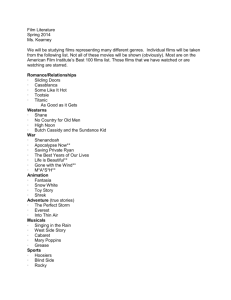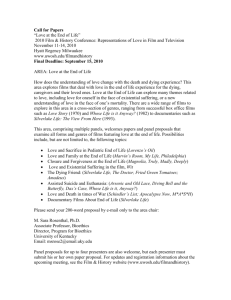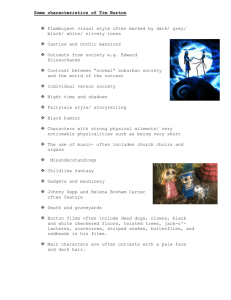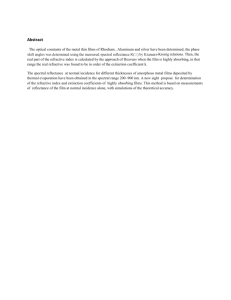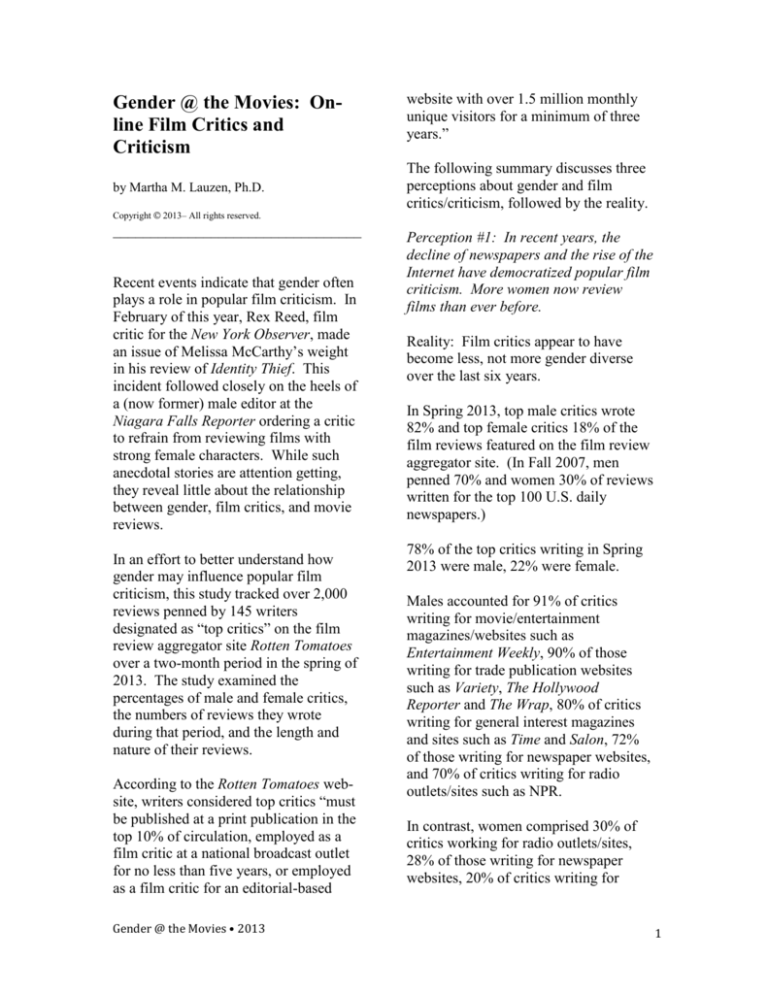
Gender @ the Movies: Online Film Critics and
Criticism
by Martha M. Lauzen, Ph.D.
Copyright © 2013– All rights reserved.
_________________________________
Recent events indicate that gender often
plays a role in popular film criticism. In
February of this year, Rex Reed, film
critic for the New York Observer, made
an issue of Melissa McCarthy’s weight
in his review of Identity Thief. This
incident followed closely on the heels of
a (now former) male editor at the
Niagara Falls Reporter ordering a critic
to refrain from reviewing films with
strong female characters. While such
anecdotal stories are attention getting,
they reveal little about the relationship
between gender, film critics, and movie
reviews.
In an effort to better understand how
gender may influence popular film
criticism, this study tracked over 2,000
reviews penned by 145 writers
designated as “top critics” on the film
review aggregator site Rotten Tomatoes
over a two-month period in the spring of
2013. The study examined the
percentages of male and female critics,
the numbers of reviews they wrote
during that period, and the length and
nature of their reviews.
According to the Rotten Tomatoes website, writers considered top critics “must
be published at a print publication in the
top 10% of circulation, employed as a
film critic at a national broadcast outlet
for no less than five years, or employed
as a film critic for an editorial-based
Gender @ the Movies • 2013
website with over 1.5 million monthly
unique visitors for a minimum of three
years.”
The following summary discusses three
perceptions about gender and film
critics/criticism, followed by the reality.
Perception #1: In recent years, the
decline of newspapers and the rise of the
Internet have democratized popular film
criticism. More women now review
films than ever before.
Reality: Film critics appear to have
become less, not more gender diverse
over the last six years.
In Spring 2013, top male critics wrote
82% and top female critics 18% of the
film reviews featured on the film review
aggregator site. (In Fall 2007, men
penned 70% and women 30% of reviews
written for the top 100 U.S. daily
newspapers.)
78% of the top critics writing in Spring
2013 were male, 22% were female.
Males accounted for 91% of critics
writing for movie/entertainment
magazines/websites such as
Entertainment Weekly, 90% of those
writing for trade publication websites
such as Variety, The Hollywood
Reporter and The Wrap, 80% of critics
writing for general interest magazines
and sites such as Time and Salon, 72%
of those writing for newspaper websites,
and 70% of critics writing for radio
outlets/sites such as NPR.
In contrast, women comprised 30% of
critics working for radio outlets/sites,
28% of those writing for newspaper
websites, 20% of critics writing for
1
general interest magazine sites, 10% of
those writing for trade publication sites,
and 9% of critics writing for
movie/entertainment magazine sites.
Perception #2: Film critics tend to
gravitate to films directed and written by
individuals of their own sex. In other
words, female critics gravitate toward
films with female directors and writers
and male critics are drawn to films with
male directors and writers.
Reality: There is some support for this
perception.
A larger proportion of the total reviews
written by female critics were about
films directed by and/or employing at
least one woman writer. 36% of the
reviews written by women and 21% of
reviews written by men were about films
directed by and/or written by at least one
woman writer.
Conversely, a higher proportion of the
total reviews written by male critics
were about films directed and written
exclusively by men. 79% of the reviews
written by men and 64% of the reviews
written by women were about films with
exclusively male directors and/or
writers.
Perception #3: If critics gravitate to
films created by same-sex directors and
writers, their reviews must be very
biased, awarding those films more stars
or higher ratings.
written exclusively by males (average of
604 words). Reviews female critics
write about films with female directors
and/or written by at least one woman are
considerably shorter (average of 480
words). Male critics write slightly
longer reviews, on average, about films
directed by and/or with at least one
woman writer (average of 485 words)
than about films directed and/or written
by males (average of 473 words).
In addition, neither male nor female
critics award substantially higher ratings
to films directed and/or written by those
of their same sex. Female critics award
the highest average scores to films
directed and written exclusively by
males (67%), followed closely by films
directed by a woman and/or employing
at least one woman writer (64%). Male
critics assign higher average ratings to
films with exclusively male directors
and/or writers (63%), followed closely
by films directed by a woman and/or
employing at least one woman writer
(60%).
The Bottom Line: Popular film criticism
remains a predominantly male activity.
Films with male directors and writers
receive greater exposure as male critics
are more likely to review these films
than films with female directors and
writers. However, while film critics tend
to review higher proportions of films
directed and/or written by individuals of
their same sex, on average, critics do not
privilege those films by writing longer
reviews or awarding them substantially
higher ratings.
Reality: Not necessarily.
Female critics write their lengthiest
reviews about films directed and/or
Gender @ the Movies • 2013
Report compiled by Dr. Martha M. Lauzen, Executive
Director, Center for the Study of Women in Television and
Film, San Diego State University, San Diego, (619) 5946301
2




